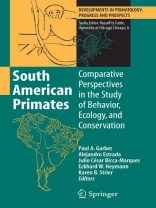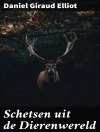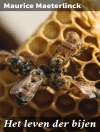This will be the first time a volume will be compiled focusing on South American monkeys as models to address and test critical issues in the study of nonhuman primates. In addition, the volume will serve an important compliment to the book on Mesoamerican primates recently published in the series under the DIPR book series. The book will be of interest to a broad range of scientists in various disciplines, ranging from primatology, to animal behavior, animal ecology, conservation biology, veterinary science, animal husbandry, anthropology, and natural resource management. Moreover, although the volume will highlight South American primates, chapters will not simply review particular taxa or topics. Rather the focus of each chapter is to examine the nature and range of primate responses to changes in their ecological and social environments, and to use data on South American monkeys to address critical theoretical questions in the study of primate behavior, ecology, and conservation. Thus, we anticipate that the volume will be widely read by a broad range of students and researchers interested in prosimians, New World monkeys, Old World monkeys, apes, humans, as well as animal behavior and tropical biology.
İçerik tablosu
Advancing the Study of South American Primates.- Taxonomy, Distribution, Evolution, and Historical Biogeography of South American Primates.- The Diversity of the New World Primates (Platyrrhini): An Annotated Taxonomy.- Paleogeography of the South Atlantic: a Route for Primates and Rodents into the New World?.- Platyrrhine Ecophylogenetics in Space and Time.- Recent Theoretical Advances in Primate Behavior and Ecology.- Demographic and Morphological Perspectives on Life History Evolution and Conservation of New World Monkeys.- Long-Term Field Studies of South American Primates.- Sexual Selection, Female Choice and Mating Systems.- The Reproductive Ecology of South American Primates: Ecological Adaptations in Ovulation and Conception.- Genetic Approaches to the Study of Dispersal and Kinship in New World Primates.- Predation Risk and Antipredator Strategies.- Mechanical and Nutritional Properties of Food as Factors in Platyrrhine Dietary Adaptations.- Neutral and Niche Perspectives and the Role of Primates as Seed Dispersers: A Case Study from Rio Paratari, Brazil.- The Use of Vocal Communication in Keeping the Spatial Cohesion of Groups: Intentionality and Specific Functions.- Primate Cognition: Integrating Social and Ecological Information in Decision-Making.- Conservation and Management of South American Primates.- Impacts of Subsistence Game Hunting on Amazonian Primates.- Primate Densities in the Atlantic Forest of~Southeast Brazil: The Role of Habitat Quality and Anthropogenic Disturbance.- Ecological and Anthropogenic Influences on Patterns of Parasitism in Free-Ranging Primates: A Meta-analysis of the Genus Alouatta.- Primate Conservation in South America: The~Human and Ecological Dimensions of the Problem.- Concluding Chapter.- Comparative Perspectives in the Study of South American Primates: Research Priorities and Conservation Imperatives.












